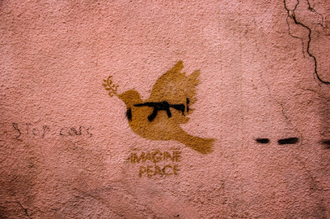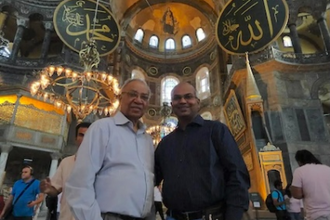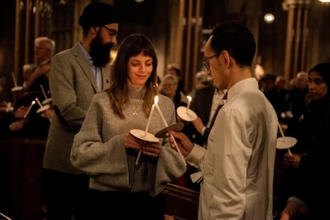The social soil of peace: Re-discovering the soul of Islam

Photo by Zaur Ibrahimov on Unsplash
In a world saturated with narratives that equate Islam with violence, a recent seminar for the first-year theology students, organised by Fr Joseph Victor Edwin SJ, offered a timely and profound counter-narrative. A team from the Centre for Peace and Spirituality (CPS) International, founded by the late Islamic scholar Maulana Wahiduddin Khan, presented a vision of Islam as a foundational source of peace, challenging students to look beyond headlines and engage with its spiritual core.
The speakers, including Rajat Malhotra, Sara Fatima, and Maulana Farhad Umri Sahab, presented their views that the path to harmony lies not in political debate, but in rediscovering the soul of a religion dedicated to peace.
The golden thread woven throughout the day was a radical re-framing of the relationship between peace and justice. Rajat Malhotra, the International Global Coordinator for CPS, introduced what he called the "master key" to all human progress: "Peace for the sake of peace, not for the sake of justice." This principle, he explained, is rooted in the Prophet Muhammad's Treaty of Hudaybiyyah, where a ten-year truce was accepted over immediate retribution. Malhotra offered a powerful analogy, describing peace as "social soil." "We cannot," he argued, "demand the fruits of justice from barren land. We must first cultivate the soil with unconditional peace, and only then will the fruits of justice and progress naturally grow." This pragmatic approach, he noted, was the very engine of revival for post-war Germany and Japan, which chose reconstruction over revenge and reaped the rewards.
This external peace, the speakers argued, must be built on a foundation of inner tranquillity derived from a proper understanding of God's plan. Speaker Sara Fatima guided the audience through the spiritual core of Islamic belief, emphasising the Qur'an as the unadulterated, historically preserved word of God. She spoke of its central message: this world is a brief testing ground, a preparatory stage for an eternal existence. Understanding this "Creation Plan" liberates the believer from the anxiety of worldly injustice, refocusing their energy on personal accountability and spiritual purification. This perspective counters the political interpretations of Islam that fuel extremism, reminding believers that their ultimate purpose is not to establish a worldly empire, but to prepare their souls for God.
A crucial theme was the call to separate the divine teachings of Islam from the flawed actions of its followers. "Judge Muslim behaviour in light of Islamic teaching, and not the other way around" was both the speakers' repeated plea. They insisted that acts of terrorism are a gross deviation, a product of political misinterpretation by misguided leaders, and stand in direct contradiction to the Quranic principle of "no extremism in religion." Even the term jihad, they clarified, has been misrepresented; its true meaning is a peaceful, ideological struggle for self-improvement and the betterment of society. In a gesture of profound solidarity, the speakers frequently quoted the teachings of our Lord Jesus, framing an enemy as a "potential friend" and reminding the audience of the shared ethical ground upon which all children of Abraham stand.
Thus, the seminar was more than an academic exercise in interreligious dialogue; it was a Spirit-led invitation to combat the polarisation of our times by seeking truth and fostering mutual respect. It provided the tools to see beyond prejudice and to engage with Muslims not as 'the Other,' but as fellow pilgrims on a journey toward God. In our nation of India, whose historic, organic, integrated diversity is threatened by rampaging and divisive communal forces, this message is not just welcome but very essential. This seminar made it clear that cultivating the "social soil of peace" is the only credible way forward, a prophetic challenge for all people of faith.


















